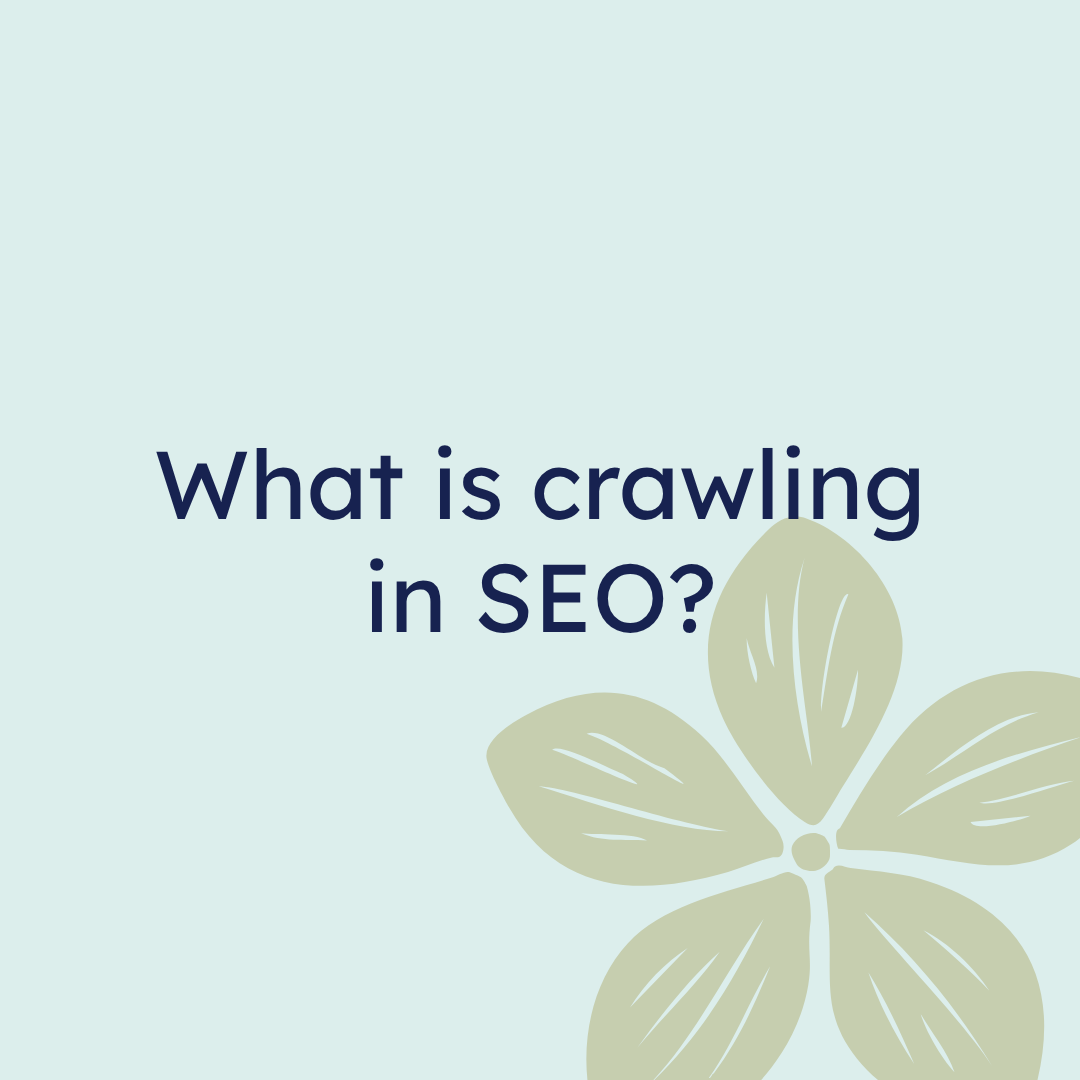Crawling is the process by which search engine bots follow links on websites to discover and analyze content. It plays a critical role in SEO, as it makes it possible for search engines to find your pages, and decide how important they are for indexing and ranking. If bots aren’t able to properly crawl your website, even the most valuable content on your site might not be visible in search.
1) What is crawling in SEO?
Crawling in SEO is where search engine bots, often called crawlers or spiders, visit web pages to discover new or updated content. These bots follow links on websites to gather information and have a huge effect on how visible a page or site can be.
Imagine – if the internet is one vast library, crawlers are like librarians, meticulously scanning bookshelves to discover new titles and organize them for readers. All the information gathered is cataloged in a database, making every book – or page – searchable and accessible when someone needs it.
So, without proper crawling, your website might remain an undiscovered work of literary genius, never reaching its audience!
2) Crawling vs indexing – what is the difference?
Crawling is the process where search engine bots explore a website and gather information, and indexing then stores this information in a search engine’s database. Simply put, crawling assesses the quality of content, and indexing is about organizing, storing, and prioritizing content for retrieval in search results.
Of course, in reality, the concepts of crawling and indexing are far more complex than this, but even a basic understanding of crawling, indexing, and how they work can help website owners ensure their pages appear right where they want them.
We’ll explore how crawlers work in a moment, but first, let’s consider how the information gathered by crawlers affects how your content appears in search results. Without indexing, your content cannot appear in search results, no matter how valuable or relevant it is. This is because search engines like Google use indexing to catalog web pages and match them to search queries.
And, without crawlers, indexing would be far less sophisticated than it is!
So, if your pages aren’t crawled and indexed, they’re like dusty books left in the back room of a library – full of valuable information but inaccessible to anyone who might benefit from them.
3) How do crawlers in SEO work?
Crawlers start with a list of known URLs and follow links to navigate from one page to another. Every page visited by a crawler will be analyzed for content, metadata, and HTML structure, and internal and external links will be identified to verify how pages are connected.
Crawlers rely on rules and schedules to periodically revisit pages, ensuring updated content is captured and indexed. The frequency with which a page is visited will depend on factors like website authority, content relevance, and crawl budget. Pages that are updated regularly and contain links from trustworthy sources will be crawled more often.
When a crawler visits a site, it will analyze its structure and content. It will primarily navigate from page to page using links, but can also use other methods such as a sitemap to discover pages. For each page visited, a vast amount of data is collected, including the following:
Page URL
Page content, including text, headings, images, videos, and other visible content.
Metadata – titles, meta descriptions, and meta tags.
Canonical tags
Internal and external links
HTTP response codes (e.g., 200 ok, 404 not found, 301 redirect).
Page speed and performance metrics.
How well the page displays on mobile devices.
How far the page is from the homepage in terms of clicks.
Last modified date
The ‘indexability’ of the page
4) Why is crawlability important for SEO?
Hopefully, by now, it should be obvious why crawlability is important for SEO – the two work hand-in-hand to ensure that search engine bots can easily access, discover, and index your carefully crafted content.
Crawlability is crucial for SEO because if search engines cannot crawl your site, they cannot discover or rank your content. A crawlable website ensures your pages are accessible, indexed, and displayed in search engine results pages (SERPs).
(And yes, ‘crawlability’ is a real word – at least in the SEO world!)
Issues like broken links, poor navigation, or blocked pages can hinder crawlers from fully exploring your website. When a site lacks proper crawlability, important content might go unnoticed by search engines, resulting in missed traffic opportunities.
5) How to improve crawling and indexing
To achieve optimum crawlability and improve your visibility and ranking in search results, here are key points to implement or check:
Organize your website logically with categories and subcategories.
Link all pages on your site internally to help crawlers move from page to page.
Submit an XML sitemap through tools such as Google Search Console.
Check your robots.txt file to ensure it’s up to date and not blocking important pages.
Optimize site speed – a slow website can result in incomplete crawling.
Regularly audit your site to identify and fix broken links and redirects.
Use structured data to help crawlers understand your content in more detail.
Ensure your site is optimized for all devices, including mobiles and tablets.
Regularly update your site with new content and ensure old content is still relevant.
Use Google Search Console to monitor crawl errors, crawl budget, and other important data.
If you’re feeling overwhelmed by the technical aspects of SEO, working with an expert like Aloha Life Digital can help streamline this process and ensure your site is fully optimized for search engine success.
Thanks for taking the time to stop by my site! If you liked this article, here’s how you can get lots more free SEO and content stuff from me…
- Read How many SEO keywords should I use?
- Join my mailing list here to get infrequent SEO and content updates from me
- Book a consultation with me here.



